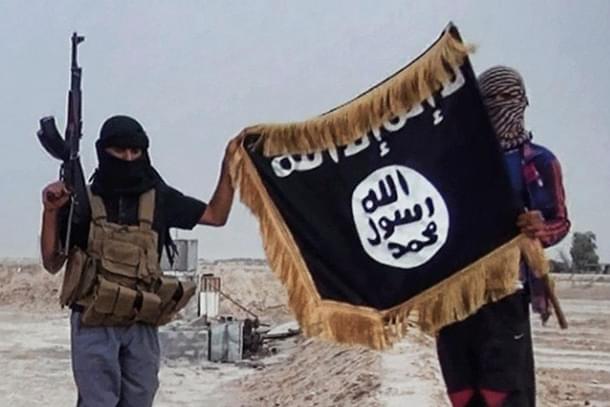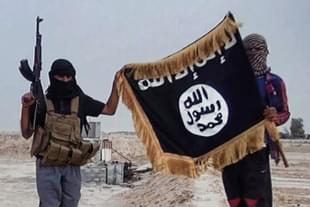Politics
How A Pakistan Senate Report Reveals Islamabad’s Worries Over India’s Toughening Stance
M R Subramani
Feb 22, 2019, 06:29 PM | Updated 06:29 PM IST
Save & read from anywhere!
Bookmark stories for easy access on any device or the Swarajya app.


The recent attack on the Central Reserve Police Force (CRPF) convoy on 14 February this year by Pakistan-based terrorist organisation Jaish-e-Mohammed that led to over 40 personnel being martyred, has brought into focus a 2016 report submitted in the Pakistan senate.
The Pakistan senate is like the Indian Rajya Sabha, and it had set up a ‘Committee Of The Whole’ to prepare policy guidelines in the light of emerging regional realities. A ‘Whole Committee’ is based on the US practice of making all representatives serve on the panel.
Around the time when the Narendra Modi government began to retaliate against Islamabad’s action of encouraging terrorist attacks from its territory, the Pakistan senate asked the ‘Committee of Whole’ to come up with “policy guidelines in view of the latest situation developing between India and Pakistan”.
A motion was moved in the Pakistan senate on 26 September 2016 based on which 13 members were nominated on the committee. A month later, it came out with a four-page report or the ‘First Report’.
In its initial remarks, the committee indulged in the usual anti-India bashing, condemning Indian action in Kashmir, seeking plebiscite in the territory, demanding setting up of a fact-finding team, reaffirming the Shimla Agreement and taking note of “attempts by India to disturb Indus Water Treaty and use of water as weapon by Modi Government”.
The concerns raised in the senate report seem to be the way the Modi government has handled Pakistan. ‘Modi’ figures six times in the four-page report.
The more glaring aspect of the report is the senators’ admission that for the first time since 1971, Pakistan was facing intense pressure from India. The report said:
... not since 1971 has the Indian government gone to the extent of pressuring Pakistan as is being done by the Modi regime. There is a clear pattern in the behaviour of the Indian state and government in the last few months
Referring to Modi’s speech at the US Congress on 8 June 2016 followed by his 15 August Independence Day address and 5 September address at the G-20 summit in China, the report said the public reference to Balochistan was an attempt to malign Pakistan.
Stating that India had sabotaged the South Asian Association for Regional Cooperation summit that was scheduled in Islamabad for November that year, the senators also pointed out at India’s opposition to the China-Pakistan Economic Corridor as part of its efforts to undermine Pakistan.
The report said that India and the US had formed a military axis to counter China and promote Indian hegemony in the region to spark a new cold war in South Asia.
Indirectly referring to India signing the Logistics Exchange Memorandum of Agreement, the senators charged India with granting access to land, air and naval bases to the US.
After these, the senators came up with policy guidelines that focussed on campaigning against India and on Kashmir. And it is revealing.
One of the suggestions was urging periodical and regular special briefings for the foreign media and social media “for publicising Jammu and Kashmir issue”.
But more pointed and specific suggestions targeting Indians followed in the report. One was to highlight “India's own fault-lines in their alienated Muslims, Sikhs, Christians and Dalits as well as the growing Maoist insurgency.”
The senators said services of the Islamabad Policy Research Institute and Institute of Regional Studies could be availed of to study India.
Specifically, the report said:
Modi and his RSS ideology of Hindutva should be targeted.
The senators called for a comprehensive outreach to “those segments of Indian public opinion which are opposed to Modi and his anti-Pakistan policies including political parties, media, civil society organisations and human rights groups”.
In addition, the report said that Pakistan should send a loud and clear message to the world that it is fighting the largest inland war against terrorism and violent extremism and there was no room for non-state actors.
It added:
That the soil of Pakistan should not be allowed to be used by violent non-state actors.
While the last two points have proved to be mere words, just like Pakistan Prime Minister Imran Khan’s address following the Pulwama attack, the issue of the senators suggesting an outreach to Modi’s opponents is significant.
One wonders if the Imran Khan government has begun to follow this. In December 2018, Pakistan arranged for the visit of a group of Indian journalists to cover the inauguration of the Kartarpur corridor.
It is a mere coincidence that a majority of them, if not all, carry a bias against the Modi government? Some of their reactions and statements in the social media following the Pulwama attack are also revealing.
An interesting part of the invitation for the event was that none of the three Indian wire agencies, considered neutral in their news coverage, got the Pakistan government clearance. Smita Prakash, editor of Asian News International, one of the three agencies - the Press Trust of India and United News of India are the other two - tweeted that her agency didn’t get a visa.
One of the journalists who got visa was referred to as a “veteran journalist”, while another portal , critical of Modi, saw three of its journalists get a visa.
Another woman journalist, who now alleges that she is being trolled for her stance on the Pulwama attack, was extended a visa as ‘consulting editor’ of a weekly.
What the report and subsequent events reveal is that there is no doubt that the Pakistan government, especially its army and its Inter-Services Intelligence, are concerned over the Modi government’s tough stance.
And in the lead up to the Lok Sabha elections, all the anti-Modi forces, including ones from within the country, are joining hands.
Not for nothing did the senators say that Pakistan is under pressure for the first time since 1971!
M.R. Subramani is Executive Editor, Swarajya. He tweets @mrsubramani





